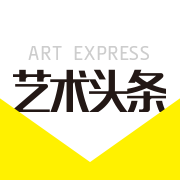
Exhibition at Gagosian explores how Picasso used photography in his studio practice
2014-10-29 11:25:40 未知
NEW YORK, NY.- Gagosian Gallery, in partnership with Bernard Ruiz-Picasso, presents “Picasso and the Camera,” the fifth in a series of major Picasso surveys, following “Mosqueteros” (2009), “Picasso: The Mediterranean Years (1945–1962)” (2010), “Picasso and Marie-Thérèse: L’amour fou” (2011), and “Picasso and Françoise Gilot: Paris-Vallauris 1943–1953” (2012). Curated by Picasso biographer John Richardson, assisted by Gagosian directors Valentina Castellani and Michael Cary, the exhibition explores how Picasso used photography not only as a source of inspiration, but as an integral part of his studio practice. Spanning sixty years, this show, which includes many photographs taken by Picasso but never before seen or published, as well as related paintings, drawings, sculptures, prints, and films, will provide an unprecedented survey of his unique relationship with the camera. David Korins, acclaimed scenic and production designer for stage and screen, has transformed the 21st Street gallery with an innovative exhibition design that seamlessly incorporates the vast array of archival materials with Picasso's own works in a variety of media.
The most famous visual artist of the 20th century, Picasso was also the most photographed. His striking features became an icon of his own time, recognized the world over. Yet this phenomenon was not a mere by-product of celebrity; his own practice set the precedent. Picasso engaged with photography and photographers in myriad ways, starting from his early days in Paris and continuing through the last years of his life. He used the camera to capture life in the studio and at home, to try out new ideas, to study his works and document their creation, and to shape his own image as an artist at work. He collaborated with Brassaï, his celebrated mistress Dora Maar and Andre Villers to create wholly original works, filmed home movies of his family and friends, and worked with filmmakers such as Luciano Emmer and Henri-Georges Clouzot to capture his creative process. His life and work were documented by photographers as diverse as Jean Cocteau, Cecil Beaton, Man Ray, Lee Miller, Edward Quinn, Jacques-Henri Lartigue, Lucien Clergue, Michel Sima, and Arnold Newman. The resulting body of photographs and films, filled with fact, invention and myth, is vital to an understanding of Picasso’s achievements across his entire artistic output. As Picasso said to one of his favorite photographers Brassaï, “...I want to leave as complete a record as possible for posterity.”
“Picasso and the Camera” is accompanied by a fully illustrated catalogue with new essays by Mary Ann Caws, Victoria Combalía, Marvin Heiferman, and John Richardson, as well as key texts by Jacques Prévert, Man Ray, and Paul Hayes Tucker.
Pablo Picasso was born in Málaga, Spain in 1881 and died in France in 1973. Recent exhibitions of his work include “Picasso: Tradition and the Avant-Garde,” Museo Nacional del Prado and Museo Nacional Centro de Arte Reina Sofía, Madrid (2006); "Picasso and American Art," Whitney Museum of American Art, New York (2006, traveled to Walker Art Center, Minneapolis; and San Francisco Museum of Modern Art, through 2007); “Picasso et les Maîtres,” Galeries nationales du Grand Palais, Paris (2008–09); “Picasso: Challenging the Past,” National Gallery, London (2009); “Picasso at the Metropolitan Museum,” Metropolitan Museum of Art, New York (2010); and “Picasso: Black and White,” Solomon R. Guggenheim Museum, New York (2012–13).
John Patrick Richardson, British art historian and Picasso biographer, was born in London in 1924. From 1951–62 he lived in Provence, France, and became a close friend of Picasso and his family. Richardson’s three-volume A Life of Picasso was the result of this friendship. He is currently working on the biography’s fourth volume. In connection with this, Richardson has organized five major exhibitions of Picasso’s work at Gagosian Gallery. He has been a contributor to The New York Review of Books, The New Yorker, The Burlington Magazine, and Vanity Fair, and is the author of The Sorcerer's Apprentice: Picasso, Provence, and Douglas Cooper (1999); and Sacred Monsters, Sacred Masters (2001), a collection of essays. In 1993, Richardson was elected to the British Academy. He was appointed Slade Professor of Art at Oxford in 1995. In 2011, Richardson was awarded France’s Ordre des Arts et des Lettres in recognition of his contributions to furthering the arts in France and throughout the world. He was appointed Knight Commander of the Order of the British Empire (KBE) in the 2012 New Year Honours for services to art.
(责任编辑:王维)
注:本站上发表的所有内容,均为原作者的观点,不代表雅昌艺术网的立场,也不代表雅昌艺术网的价值判断。

 张瀚文:以物质媒介具象化精神世界
张瀚文:以物质媒介具象化精神世界 吕晓:北京画院两个中心十年 跨学科带来齐白石研究新突破
吕晓:北京画院两个中心十年 跨学科带来齐白石研究新突破 翟莫梵:绘画少年的广阔天空
翟莫梵:绘画少年的广阔天空 OCAT上海馆:参与构建上海艺术生态的十年
OCAT上海馆:参与构建上海艺术生态的十年
全部评论 (0)